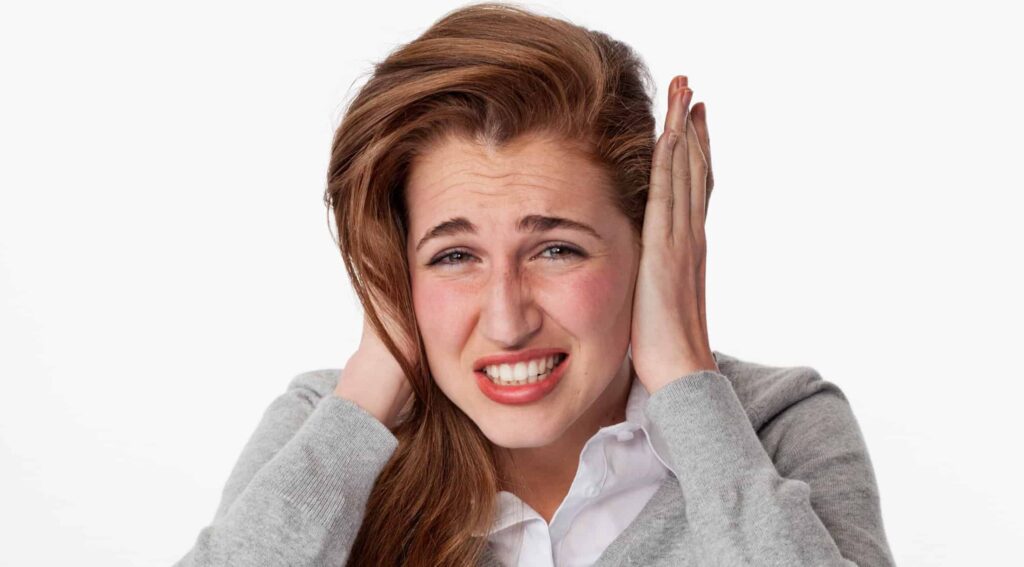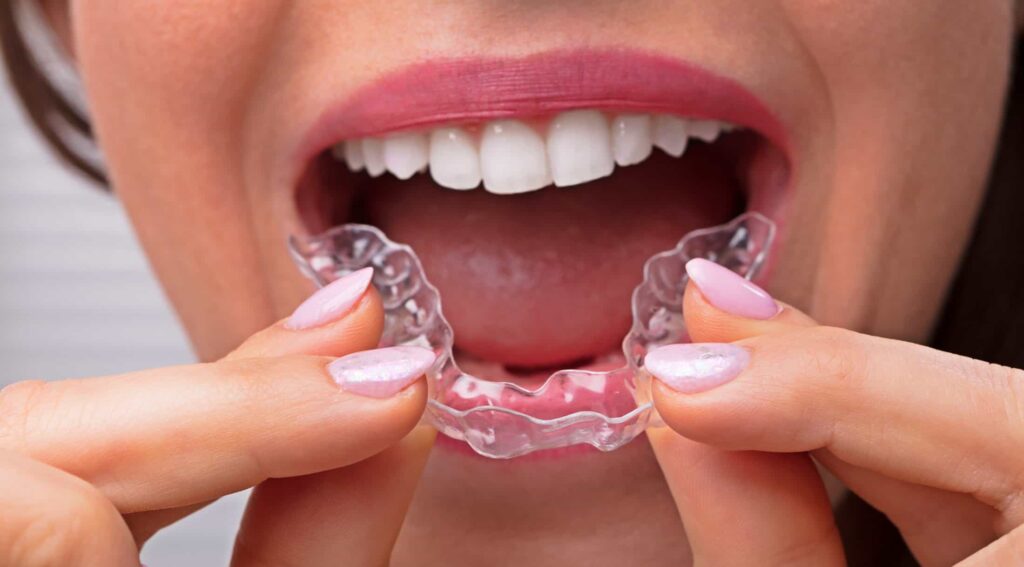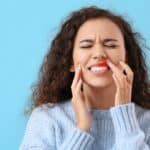Teeth grinding or Bruxism is involuntary clenching, grinding, or gnashing of the teeth. Most people grind or clench their teeth from time to time. However, when teeth grinding occurs on a regular basis the teeth can be damaged with other symptoms such as headaches or jaw pain.
Why Do People Grind Their Teeth?
The most common reason for teeth grinding is stress and anxiety. However, there are other reasons such as:
- Missing or crooked teeth, or fillings that are too high
- Parkinson’s disease and epilepsy
- Medication such as antidepressants
- Recreational drug use such as cocaine
- Sleep disorder such as sleep apnea
Symptoms of Teeth Grinding?
Because grinding often occurs during sleep, most people are unaware that they grind their teeth. However, these symptoms can be a sign of teeth grinding:
- Grinding sounds while the person is asleep
- Headache, jaw, or ear pain
- Aching teeth or stiffness of the jaws or face just after waking up
- Clenching jaws when angry, anxious or concentrating
- Sensitive teeth
- Cracked or chipped tooth enamel
- Tooth indentations on the tongue
- Raised tissue on the inside of the cheek caused by biting
- Loose teeth
Why Is Teeth Grinding Harmful?
In some cases, chronic teeth grinding can result in fracturing, loosening, or loss of teeth. Some of the other effects of teeth grinding are:
- Cracked tooth enamel
- Excessive wear and tear on teeth than normal
- Broken teeth or broken restorations such as fillings
- Strain or pain on the jaw joint
- Sore jaw muscles
- enlargement of the jaw muscles (rare).
- teeth being more sensitive to hot and cold things
Sometimes even tooth loss or enlargement of jaw muscles occur. When these events happen, bridges, crowns, root canals, implants, partial dentures, and even complete dentures may be needed.
How to Stop or Treat Teeth Grinding
If you suspect you grind your teeth or show the above symptoms, consult with your dentist to talk about different treatment options. Some of the options that your dentist might recommend are:
- Cosmetic Dentistry to repair teeth damage
- Provide an Occlusal Splint (Nightguard) which wears down the guard instead of your teeth. However, this is only temporary so treating the root cause is required
- see can fit you with a mouth guard to protect your teeth from grinding during sleep.
If stress is causing you to grind your teeth, your dentist might advise you to consult a doctor for options to reduce your stress such as stress counselling, exercise programs, physical therapy, or even muscle relaxants to help you relax the clenching or grinding. In case of sleep disorder or sleep apnea, using a device to relax would help.
You can also practice healthy habits to stop teeth grinding such as:
- Avoiding or cutting down on caffeine-rich food and drinks such as coffee, chocolate, and colas
- Avoiding or reducing alcohol. It is shown that grinding tends to intensify after alcohol consumption
- Avoiding chewing on pens or pencils at work. Avoiding chewing gum is a good practice as it relaxes your jaw muscles that would have been used to clenching while chewing
- Physically training yourself not to clench or grind your teeth. If you clench during the day at work, holding the tip of your tongue between your teeth helps to train jaw muscles to relax
- Holding a warm washcloth against your cheek at night in front of your earlobe before sleeping helps to relax your jaw muscles
Do you have any teeth grinding problems? Call our friendly team on 3390 6100 or email us. Or click here to book your appointment.









